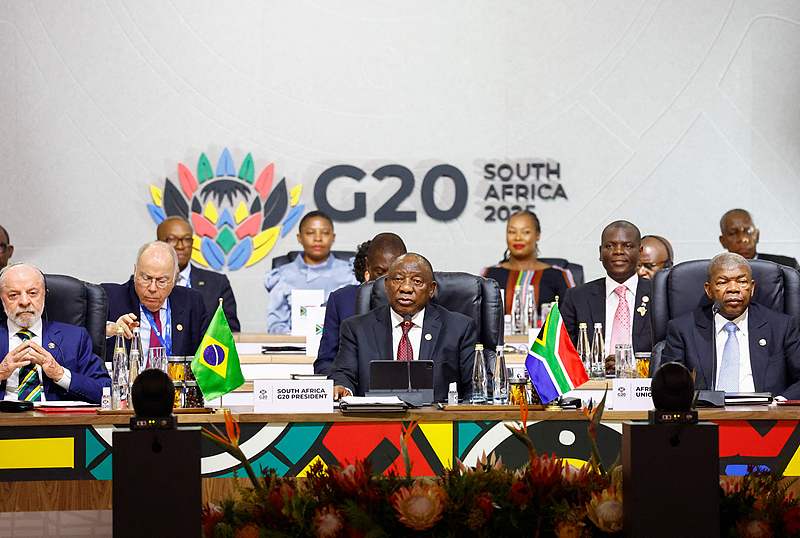
Saving Mauritania’s ancient manuscripts

From a small door, Saif Ould Ahmed Mahomed appears with an ancient manuscript that his family has held on to for centuries.
He is a keeper of one of Chinguetti’s family-owned libraries. His work is focused on preserving religious texts in Chinguetti, but it is proving difficult.
The sinking city
A once-important trading outpost and gathering place for Islamic pilgrims, Chinguetti was established in 777CE. The city now stands as a memorial to those past times. a crumbling district which is sinking into the desert bed. The old unadorned mosque stands which now stands only half as tall as when it was created, and 12 decaying libraries housing the holy manuscripts left by pilgrims are among the few buildings that remain.
Chinguetti is a place that clings to its traditions, and attempts to sustain them by sticking to age-old preservation methods. But those methods are not conducive to both Chinguetti’s sinking infrastructure and disintegrating written records.
Desperate to rescue their heritage, those in the city who have been so keen to turn away from the modern world, now hope the tools of the present can help preserve their past.

Family business
Countries usually rely on huge archive buildings or complex systems to preserve their most-prized records. Mauritania relies on families to keep their heritage alive. Some of the libraries are in good condition, others – not so much.
Out of the more than 33,000 manuscripts that were identified in Mauritania at the end of the 1990s, most are believed to be in the hands of private owners. And in Chinguetti, it seems unlikely that these owners will hand their artifacts over.
“This library is more than 200 years old, it has over 2000 manuscripts and it’s one of the oldest libraries… And it’s a private library,” Mohamed Lemen Habot, current keeper of the Habot library in Chinguetti, told CGTN’s Vauldi Carelse.
“Each generation designates a person to take care of the library, but it should be from the family. We think it’s our personal property and we take pride in it – that’s why only the family can take care of it.”
It is no wonder, that once discovering the rough market value of texts like these, families become even more inclined to hold onto them – avoiding donating them to museums.
“The oldest book that we have has all of the descriptions of the Koran and it dates back to 1804. For us these books are like gold. They are something very expensive. If we don’t take care of it one day all of this knowledge will be lost and it will ruin everything,” Mohamed Lemen Habot added.
But holding onto these manuscripts is proving difficult. Families often lack the required technology to fully preserve the texts, and instead, pack them in cardboard files in small rooms – much like storage.
“We take care of these manuscripts in two ways,” Saif Ould Ahmed Mahomed, told Carelse.
“The first one is that they took all of the boxes and put it under the sun for three days until they get dry. That’s the first step to preserve them. And then they took buckets and filled it up with water. Sometimes they took salt and threw it all over the room. This operation is called Tlewie.”

Turning digital
A number of books housed in the libraries are near to ruin. Their pages are torn and in many cases, damaged by water. Their fragile goat- and camel-skin covers are decaying. Many of the keepers realise that these hardbound copies will not exist forever – let alone make it to the next generation of library keepers.
That’s why three of the 12 library-owning families have turned digital to help save the teachings of their ancient texts.
In a race against time, these manuscripts are being handed over to an expert digitisation team to capture every page, word and artwork.
One single book can take up to two months to complete.
“There are many manuscripts in Chinguetti. The ones that are in libraries that runs into thousands. But people are saying there are many more,” digitisation expert, Mohamed Lemine Ould Bahane, told Carelse.
“You can find one manuscript that is with two different families – in separate sections, but because they want to keep they refuse to combine into one book. This is one of the main problems we face. First we have to get to know the family first and then negotiate access and then convince the family that we know what we are doing.”
Aside from photographing the manuscripts, the team also restores them and then teaches the families how to keep them and display them.
It is a big task for this small desert city – as they look to turn the page and step into the fast-moving modern world. Much of the fate of Mauritania’s written-past’s future, lies in the hands of these 12 families.






